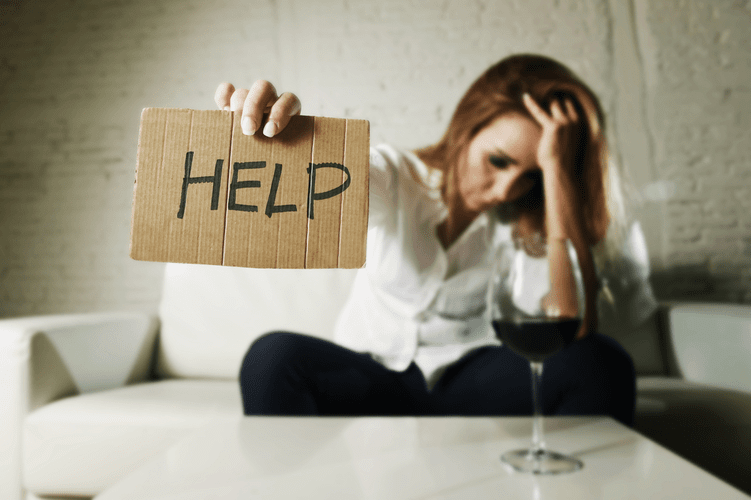Excessive Alcohol Use
Content
People with diabetes, though, have trouble managing blood sugar levels. Fortunately, most forms of diabetes can be specially managed with insulin. In general, alcohol drops blood sugar, but sugars already present in your drinks can increase it.

While whole grains have some nutritional benefits, you should limit them when trying to lower your blood sugar levels. It is also harmful to those with long-term problems with diabetes. People with diabetes are often more negatively impacted by alcohol since they are already at a higher risk for low blood sugar, kidney diseases and heart disease. Alcohol can further damage their blood vessels and increase the likelihood of developing cardiovascular disease. If you have diabetes, alcohol can put extra stress on your liver, which could lead to a buildup of fat in your liver (hepatitis) or inflammation of your liver (cirrhosis). If you already have damage to your liver, drinking alcohol increases risk factors.
Alcoholism and Type 2 Diabetes: Does Alcoholism Cause Diabetes?
That’s why it’s important to pay attention to the carbohydrate count in your drinks. Knowing the effect of alcohol on blood sugar, people often stick to drinks that have a lower alcohol sugar content in order to avoid a high. Use these estimated carb counts of popular drinks to help guide you — but always check the label of your drink or use a carb counting app. Drinking alcohol in moderation has also been linked to a number of other health benefits, such as increasing the amount of good cholesterol (HDL) in the blood. This may help lower the risk of heart disease, which you’re at greater risk for if you have type 2 diabetes. The increase in blood sugar levels gives way to hyperglycemia, or too-high blood sugar.

For others, it can lead to a range of serious consequences, including alcohol abuse, addiction, DUI charges, or health problems. Even for those who don’t have diabetes, it is important to know your limits sober house when drinking alcohol. Alcohol can cause dehydration, which can lead to other problems such as low blood pressure and fainting. Alcohol contains a lot of calories, and those calories can quickly add up.
What Are the Effects of Alcohol on Diabetes?
The two most common forms of DM are type 1 (T1DM) and type 2 diabetes, with T1DM accounting for approximately 10% of all cases in Caucasians [18]. The way that alcohol inhibits the liver’s standard function of releasing glucose sets the stage for a drop in blood sugar. Following alcohol consumption, the body begins processing sugar at a faster rate, which leads to the spike in sugar being metabolized below normal levels. These two factors alone can cause a significant drop in blood pressure, usually following the initial spike after consumption.

Keep reading to learn more about how alcohol affects people with diabetes, including types of alcohol and how alcohol may cause hypoglycemia, or low blood sugar levels. The effects of alcohol on your blood sugar will initially increase as the sugar from alcohol enters your blood, then peak once the maximum amount of sugar in the alcohol has been absorbed. Your body then releases insulin to bring your high sugar level down and inhibits the release of glucose removed from the liver. Beer and sweet wine contain carbohydrates and may raise blood sugar. People may overeat when drinking alcohol which also can increase your BG.
Mental Health Newsletter
Outside of her work, Hannah enjoys swimming, taking her dog for a walk and travelling the world. Also, wearing a medical ID piece of jewellery can aid medical professionals in identifying those who are experiencing hypoglycaemia, allowing doctors to provide appropriate care. The American Heart Association is a relentless force for a world of longer, healthier lives. We are dedicated to ensuring equitable health in all communities. Through collaboration with numerous organizations, and powered by millions of volunteers, we fund innovative research, advocate for the public’s health and share lifesaving resources.
Is wine OK for diabetics?
Good news, though. "Wine is safe for people with diabetes," says Lisa Moskovitz, R.D., CEO of NY Nutrition Group and author of The Core 3 Healthy Eating Plan. "They can pretty much drink and eat any food a person without diabetes can eat."
As you mull these ideas, keep in mind that much remains to be learned about how alcohol affects people with diabetes. P for trend is the p value of the test for linear trend among current drinkers. This is a common complication of diabetes that damages the blood vessels in your retina (the back part of your eye). Drinking alcohol can cause these blood vessels to leak or swell, further damaging your vision. If you are suffering from this diabetic eye disease, it is best to have a comprehensive dilated eye exam at least once a year. As a common complication of diabetes, diabetic retinopathy is a leading cause of blindness.

